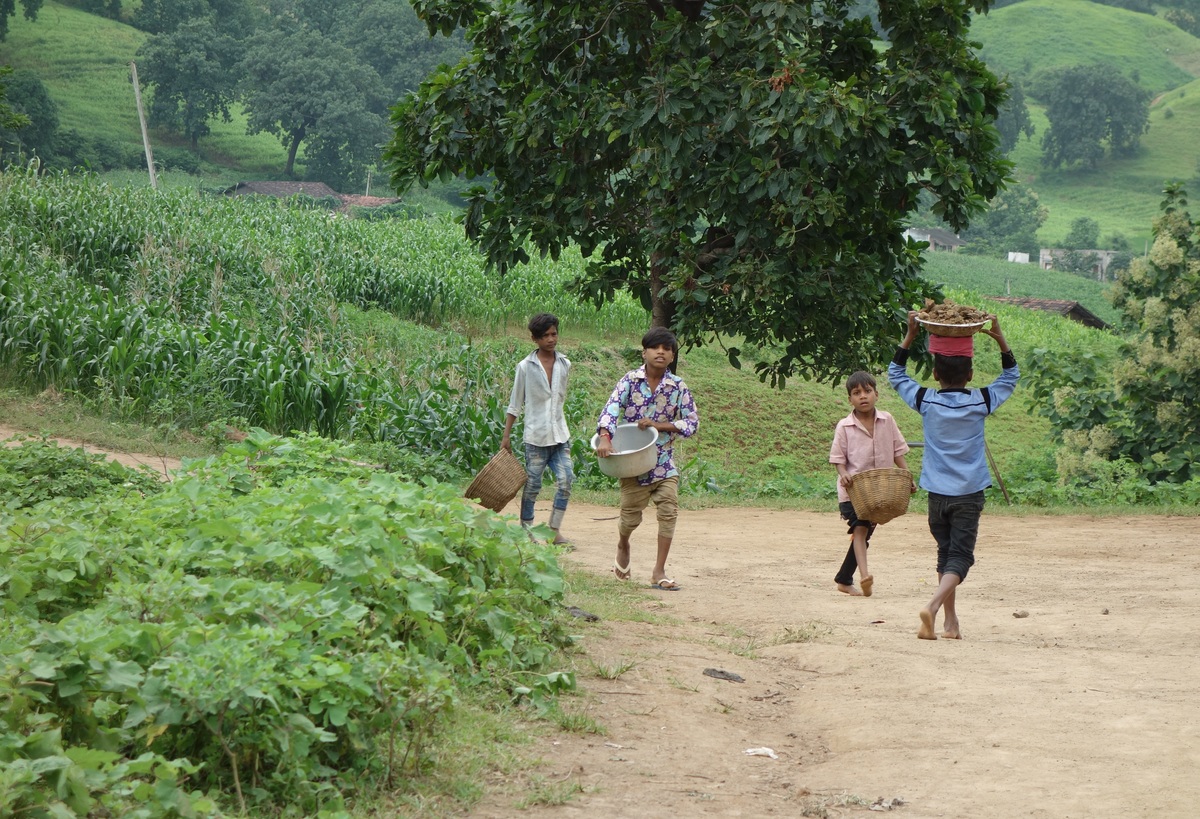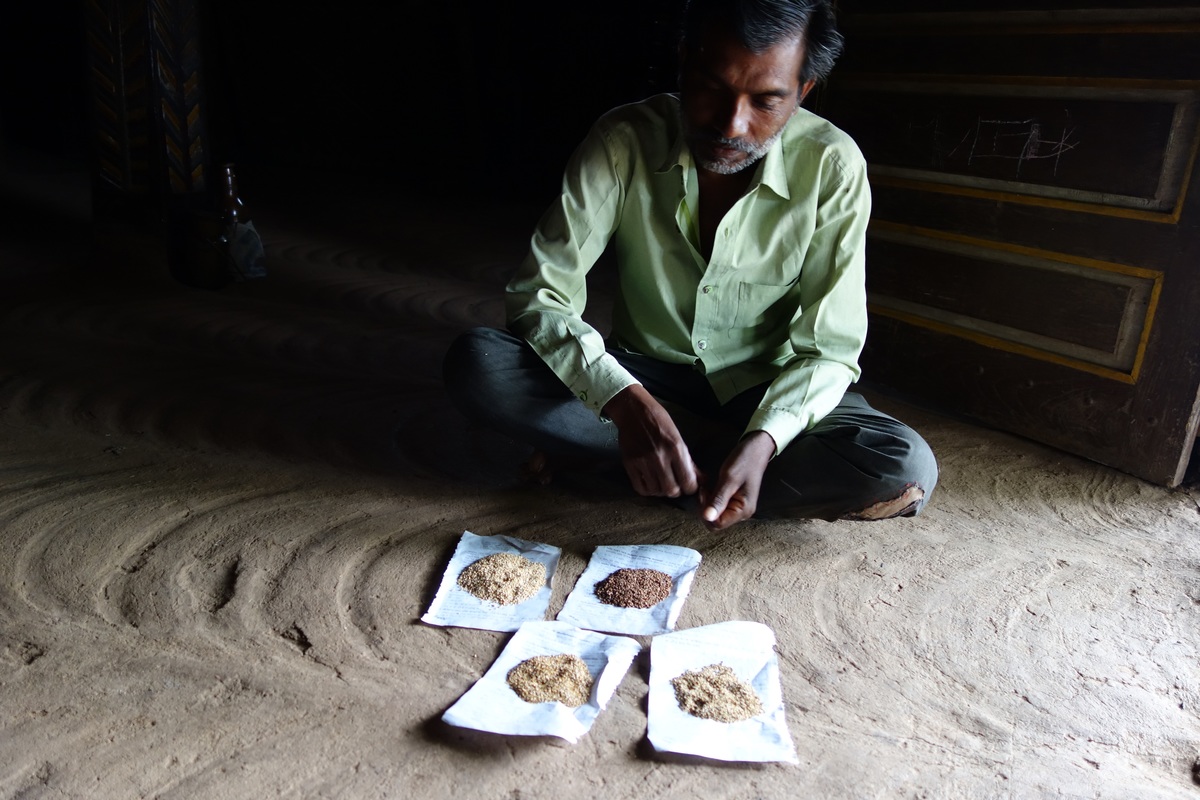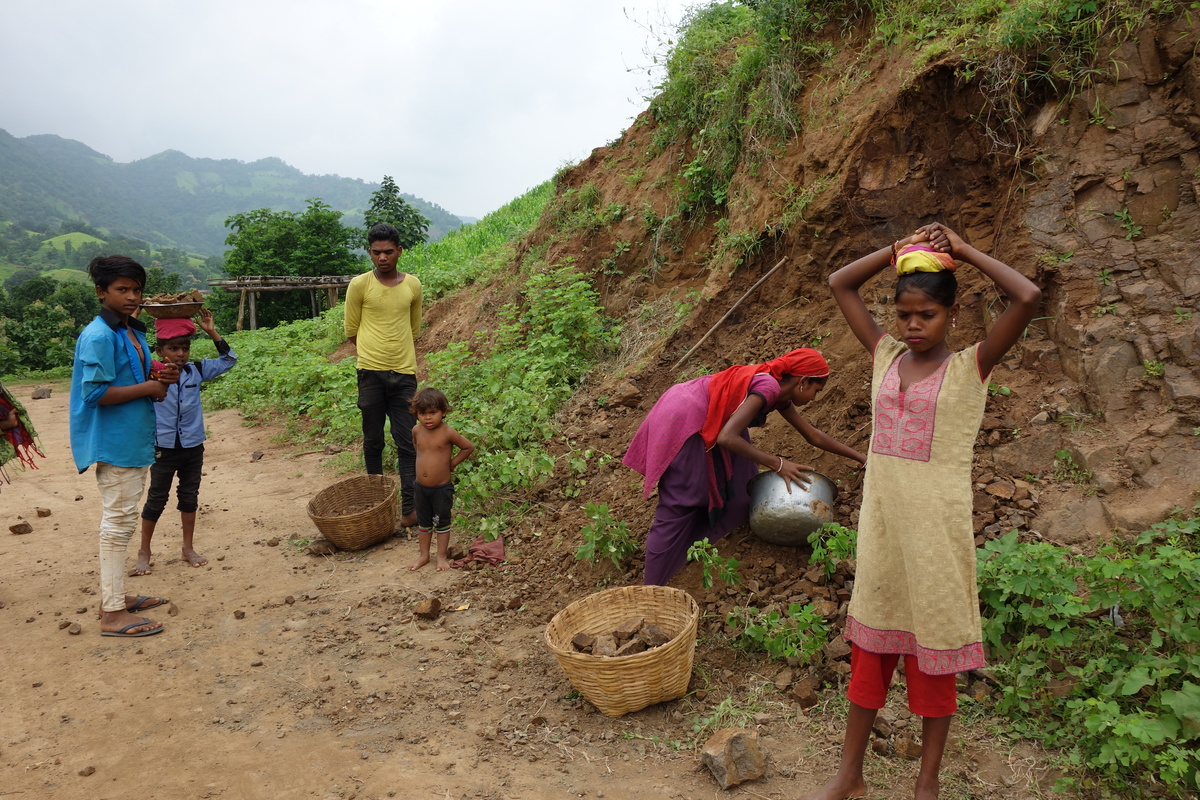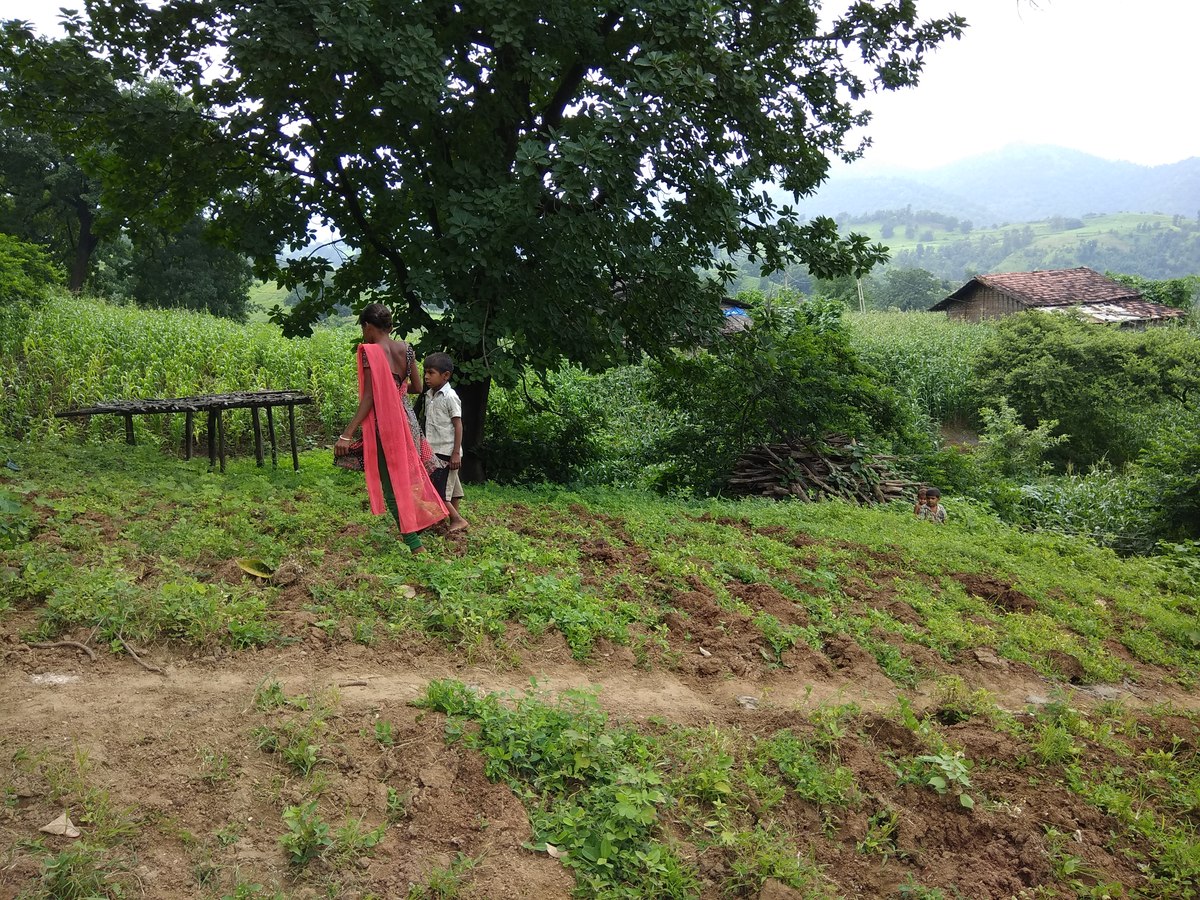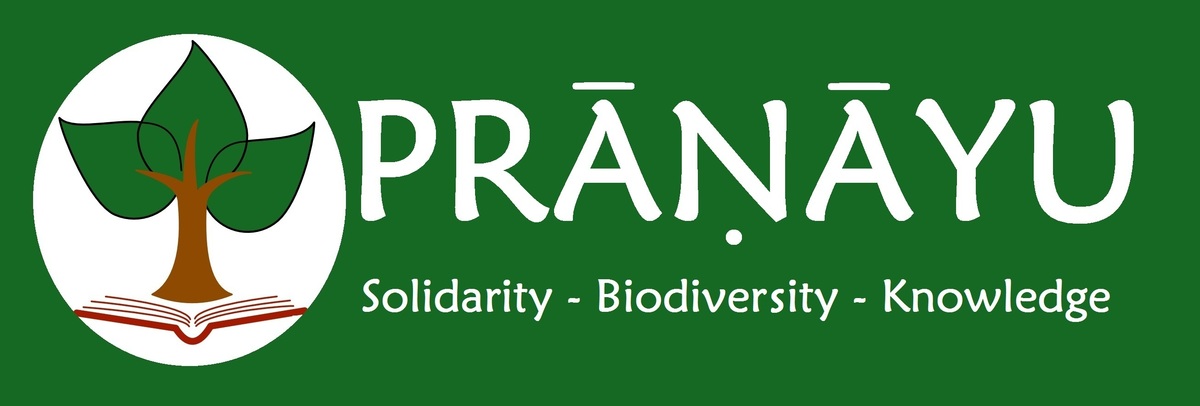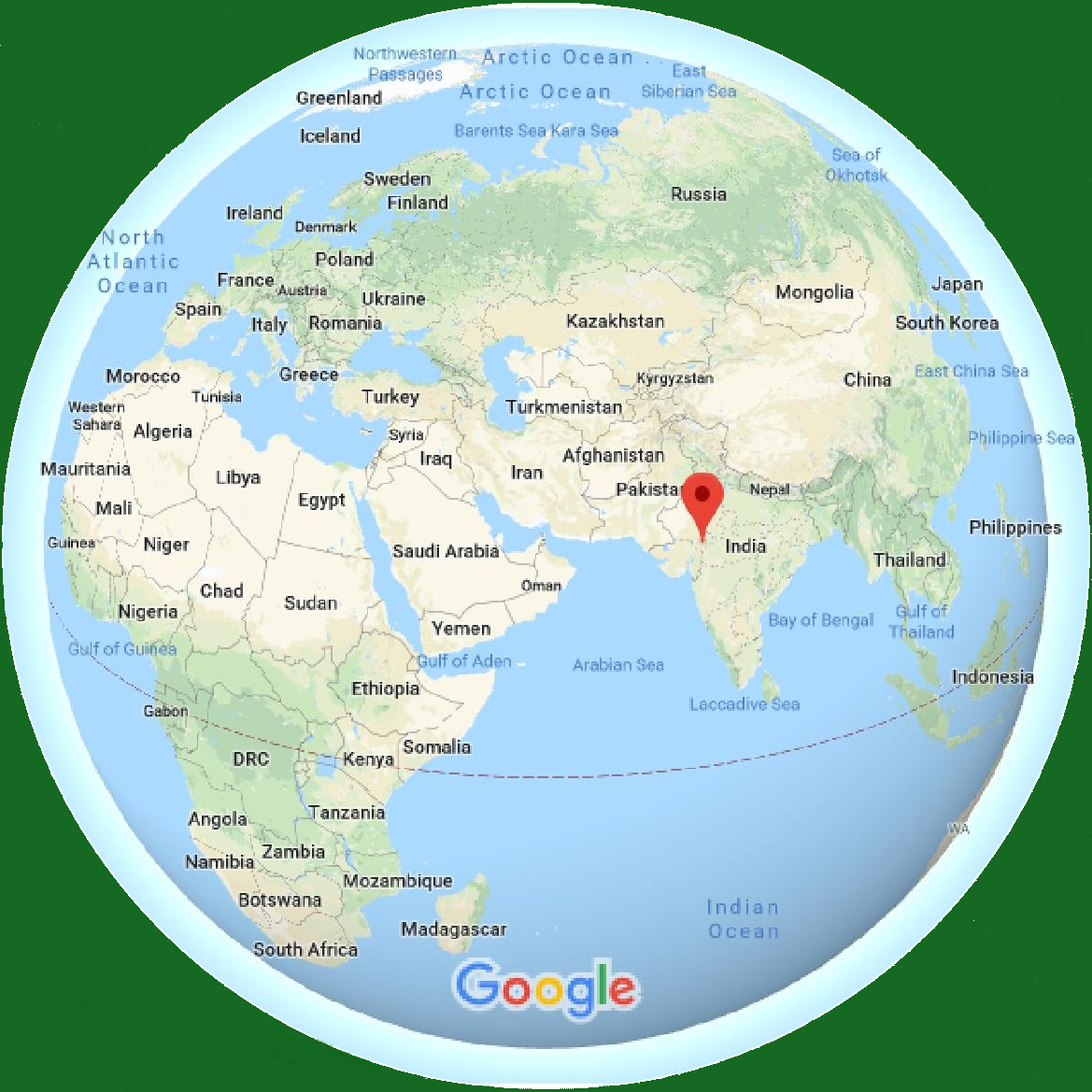As one can see, by ensuring the survival of biodiversity the way of life of Ādivāsī-s is essential for food security, and beneficial for human health. But their way of life is unfortunately endangered.
The Ādivāsī-s are still today victims of discrimination and sometimes even violence by Indian society. They are at the lowest level of almost all socio-economic indicators (source: Minority Rights). Considered as primitive people by the majority of the population in India, government programs aim to integrate them into the mainstream society, instead of allowing them to maintain their traditional way of life.
Successive displacements of the Ādivāsī-s populations
The Ādivāsī-s have been deprived of property rights on their lands during the last century, and even today, for the benefit of industrial projects. Their lands belonging to a community or to a deceased ancestor, it is extremely difficult for them to prove their property according to national legislation.
Here is an excerpt from Amnesty International's 2017/2018 report on India:
The Ādivāsī-s have been deprived of property rights on their lands during the last century, and even today, for the benefit of industrial projects. Their lands belonging to a community, or to a deceased ancestor, it is extremely difficult for them to prove their property according to national legislation.
Here is an excerpt from Amnesty International's 2017/2018 report on India:
"According to statistics released in November, more than 6,500 offenses were committed in 2016 against listed tribal members. Ādivāsī-s groups have again been displaced this year due to industrial projects. Under a special law, the government acquired land for coal mining without first obtaining the free and informed consent of the Ādivāsī-s. In July, a committee of the Ministry of the Environment declared that coal miners wishing to increase their production capacity by up to 40% did not have to consult the populations concerned.
In September, activists demonstrated against the inauguration of the Sardar Sarovar dam in Gujarat. According to them, some 40,000 displaced families, including many Ādivāsī-s families, had not received satisfactory reparations. In Raigarh (Chhattisgarh), 98 Ādivāsī-s tried in June to take legal action under the Scheduled castes and Tribes Act (prevention of atrocities), complaining of having to sell their land to representatives private businesses after being subjected to intimidation and coercion. The police did register their complaints, but refused to open a criminal case. "
Forced to move by force, the Ādivāsī-s require extensive energy in order to maintain their economic and social identity. Deprived of their land, they must set up a system of semi-wild agriculture, in a small space, often insufficient to guarantee their food security. Accepting the food distribution of the aid program then becomes the rapid response to their forced precariousness.
Destruction of self-sufficiency & disappearance of agricultural heritage
India, through the aid program of the 2013 National Food Security Law (2) distributes cereals to the Ādivāsī-s. Not only do these cereals come from varieties very poor in micronutrients, but this distribution encloses the Ādivāsī-s in a system of assistantship, of food dependence, which has the effect of diverting them from their traditions of semi-wild agriculture. This program, still in action today, destroys the self-sufficiency of these populations. More disastrous still, it causes the disappearance of the food and medicinal biodiversity that the Ādivāsī-s have maintained for centuries.
The mirage of modernization
Losing their traditions and means of existence, they succumb to the mirage of modernization. Many flee their villages and their jungle, and find themselves condemned to wither in shantytowns where the survival expectancy is often less than 47 years: unhealthy housing, crime, severe malnutrition, diseases...
(2) The 2013 National Food Security Act (2013) is an act of the Indian Parliament that aims to provide subsidized food grains to about two-thirds of the 1.2 billion Indian individuals. It was signed on September 12, 2013. People eligible for food aid receive 5 kilograms of rice, wheat or millet per person per month at a nominal price, via a Public Distribution System (PDS).




